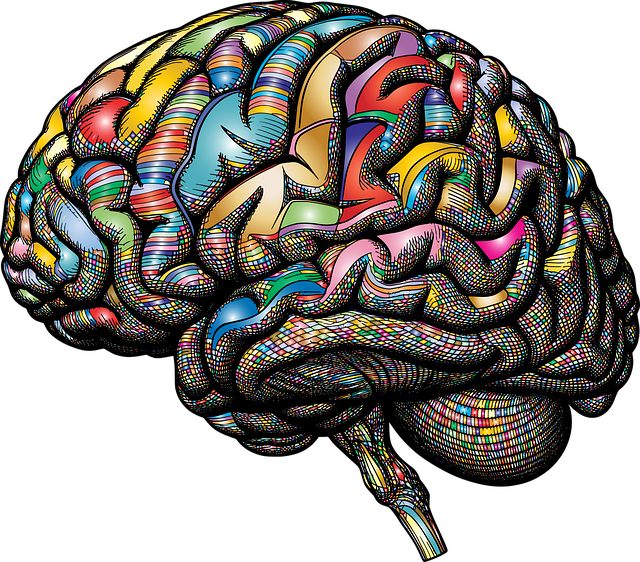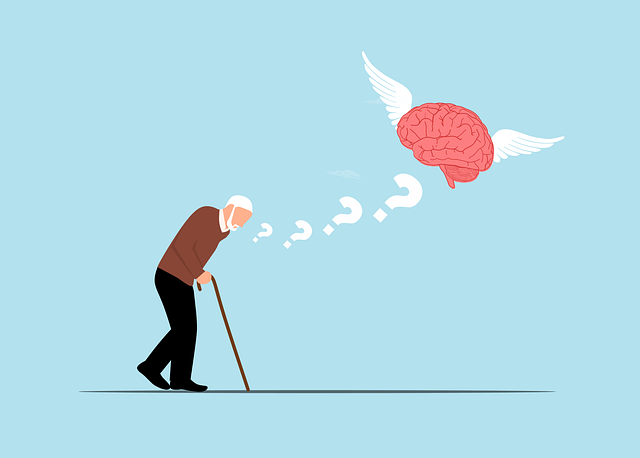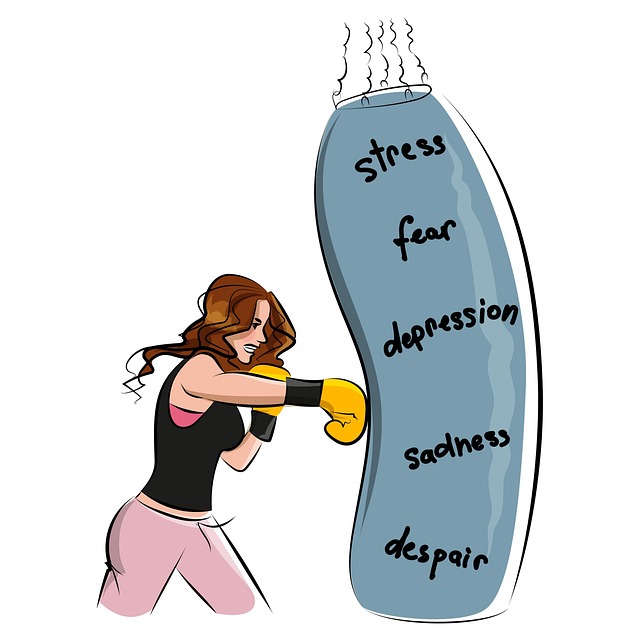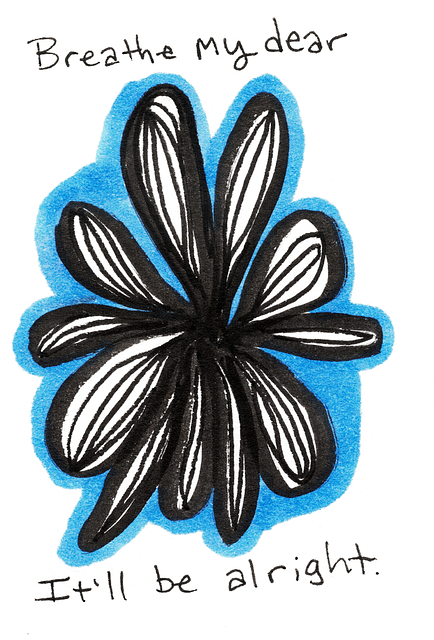Castle Rock EMDR Therapy is a proven approach to mental wellness, focusing on mood regulation through trauma processing and cognitive reframing. Combining eye movement desensitization with psychotherapy, it helps individuals process distressing memories, reduce emotional intensity, and build resilience. Self-care practices like mindfulness meditation, exercise, and balanced diets complement this therapy, offering holistic stress management and improved overall well-being. By integrating community outreach programs and promoting mental health awareness, Castle Rock EMDR Therapy contributes to stigma reduction and fosters stronger social support networks.
Mood regulation is a vital skill, enabling individuals to navigate life’s challenges with emotional balance. This comprehensive guide explores various strategies to master your mood, offering a holistic approach to well-being. From understanding the fundamentals of emotional stability to powerful therapeutic techniques like Castle Rock EMDR Therapy, which aids in trauma processing, these methods empower you to cultivate resilience. Discover cognitive reframing, mindfulness practices, and lifestyle changes for lasting emotional harmony.
- Understanding Mood Regulation: The Foundation of Emotional Balance
- Castle Rock EMDR Therapy: A Powerful Tool for Processing Trauma
- Cognitive Reframing Techniques to Shift Negative Thought Patterns
- Mindfulness and Meditation: Training the Mind for Calm and Clarity
- Lifestyle Adjustments for Enhanced Mood Stability
Understanding Mood Regulation: The Foundation of Emotional Balance

Understanding Mood Regulation is the cornerstone of achieving emotional balance and overall mental wellness. It involves recognizing and managing our internal states, ensuring they align with our goals and daily functioning. Castle Rock EMDR Therapy, a specialized form of therapy, has proven effective in helping individuals regulate their moods by processing traumatic memories and emotional responses. This approach, often highlighted in the Mental Wellness Podcast Series Production, focuses on re-establishing balance within the brain’s neural networks.
Self-Care Practices play a significant role in mood regulation. Techniques such as mindfulness meditation, regular exercise, and maintaining a balanced diet help individuals cultivate resilience against mood fluctuations. By incorporating these practices into daily routines, people can better navigate life’s challenges and foster more consistent emotional stability. Effective mood management is not just about responding to intense emotions; it’s about proactively cultivating an inner sanctuary of calm and clarity.
Castle Rock EMDR Therapy: A Powerful Tool for Processing Trauma

Castle Rock EMDR Therapy has emerged as a powerful tool for individuals seeking to process and overcome traumatic experiences. This innovative approach combines elements of eye movement desensitization and reprocessing (EMDR) with psychotherapy, offering a unique way to address deep-seated trauma and its impact on mental health. By focusing on the connection between distressing memories and emotional responses, EMDR therapy helps clients reframe and resolve these memories, leading to significant improvements in mood regulation and overall well-being.
For those struggling with the aftermath of traumatic events, Castle Rock EMDR Therapy provides a safe and structured environment. It empowers individuals to gain insights into their past experiences, reduce the intensity of associated emotions, and build resilience. This therapy goes beyond depression prevention; it aims to boost confidence and self-esteem by helping clients reclaim control over their emotional responses. Through careful guidance, patients can learn to navigate their traumatic memories with greater ease, fostering a sense of empowerment and peace.
Cognitive Reframing Techniques to Shift Negative Thought Patterns

Cognitive Reframing is a powerful tool within Castle Rock EMDR Therapy that helps individuals challenge and change negative thought patterns. By identifying distorted beliefs and reframing them in a more positive and realistic light, people can shift their emotional state from one of negativity to optimism. This technique encourages folks to question the validity of their thoughts, examining whether they’re based on facts or just assumptions and fears.
This process involves learning to recognize unhelpful cognitive distortions like all-or-nothing thinking, catastrophizing, or jumping to conclusions. Once identified, these patterns can be replaced with more balanced perspectives, fostering better mental health. Incorporating self-care practices alongside Cognitive Reframing techniques can further enhance stress management and promote overall well-being. Even considering community outreach program implementation as a means to share these strategies widely could contribute to a more supportive social fabric.
Mindfulness and Meditation: Training the Mind for Calm and Clarity

Mindfulness and meditation are powerful tools for training your mind to achieve calm and clarity, which can significantly contribute to effective mood regulation strategies. These practices encourage individuals to focus on the present moment, observing their thoughts and feelings without judgment. By cultivating mindfulness, people can develop a deeper understanding of their emotional triggers and learn to respond rather than react in stressful situations.
Incorporating Castle Rock EMDR Therapy into your wellness routine further enhances these benefits. Eye Movement Desensitization and Reprocessing (EMDR) is a therapeutic approach that assists individuals in processing traumatic memories and negative beliefs, thereby reducing the intensity of emotional distress. Combining mindfulness exercises with EMDR therapy can create a robust framework for crisis intervention guidance, empowering individuals to build inner strength and foster mental wellness through the production of a balanced mindset and effective coping mechanisms.
Lifestyle Adjustments for Enhanced Mood Stability

Maintaining a stable mood is crucial for overall well-being, and lifestyle adjustments play a significant role in achieving this balance. Simple yet powerful changes can be implemented to support mental health awareness and reduce the impact of stress. Regular exercise, for instance, releases endorphins, which are natural mood lifters, and promotes better sleep quality, a critical factor in regulating emotions. Additionally, adopting a balanced diet rich in nutrients can positively affect brain chemistry, enhancing one’s ability to manage and maintain a stable mood.
In the context of Castle Rock EMDR Therapy (Eye Movement Desensitization and Reprocessing), lifestyle adjustments become even more impactful. This therapeutic approach, which is gaining recognition in mental health awareness circles, helps individuals process traumatic memories and reduce the intensity of associated emotions. By combining effective stress reduction methods with a holistic view of well-being, one can significantly contribute to Mental Illness Stigma Reduction Efforts, fostering a healthier and more supportive environment for open conversations about mental health.
Mood regulation is a multifaceted process that involves understanding and addressing various aspects of mental health. From cognitive reframing and mindfulness practices to lifestyle adjustments, there are numerous strategies to achieve emotional balance. One particularly effective approach highlighted in this article is Castle Rock EMDR Therapy, which has proven successful in processing trauma. By combining these techniques, individuals can take control of their emotional well-being and lead happier, more fulfilling lives.












